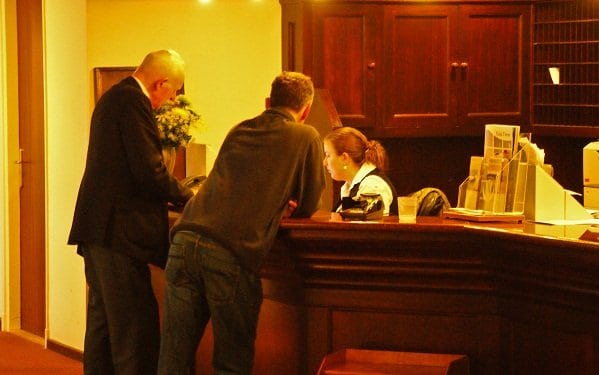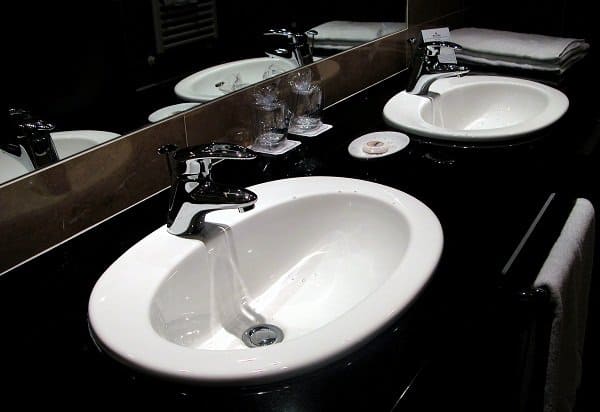Travel is a largely unregulated industry. Even hawkish countries like Australia and the UK don’t have travel ombudsmans. What does this mean for the consumer? Buyer beware. In 2011 alone we’ve taken 29 flights, 7 tours (mostly day and one longer) and stayed in 56 hotels, 39 hostels, 10 B&Bs and 7 apartments. We’ve taken countless bus and train rides and eaten in at least one restaurant every day. So I feel qualified to say what I’m about to say.
I am not impressed.
I’ve been fortunate enough to stay at some of the world’s finest hotels in my lifetime and took my first business class flight when I was in high school. I’m also humble enough to have stayed in plenty of hostels and one or two star hotels. So I’ve observed the changes in the travel industry over the last 16 years in every aspect from budget to luxury travel. Sometimes the former make more of an effort than the places that cost hundreds of dollars a night. I know I’m not the only traveller who feels this way either, noting recent posts from Suzy Guese and Emily in Chile. That said, we’ve also had some remarkably positive experiences from managers, companies and brands who really get it. This post is not aimed at them.
When travelling full-time it isn’t as big a deal when something goes wrong. But I still always complain if something is truly unacceptable. Because what about those people who are enjoying their only two week holiday for the entire year? When things don’t meet their expectations it can ruin their entire trip. The staff looking after me at a hotel don’t know my personal situation, that this day is just a blip in the scheme of things. Expectations may differ but the nature of people remains the same. We want to get what we pay for and expect value, comfort and a certain level of enjoyment from the travel industry providers we choose.
Travel companies market a dream: relaxation, a safe, reliable way to get from points A to B, cultural awareness, adventure or “getting away from it all.” What many consumers are getting these days is inconvenience and disappointment due largely to rude staff, misinformation, false advertising, sloppy administration and cost-cutting, unless they can afford to pay top dollar for the very best. Even then there are no guarantees.
Some people spend a considerable amount of time selecting what hotel they will stay at, their travel gear, restaurants and activities at the destination. For many travellers, these are not business decisions. They are taking their hard-earned money and spending it on leisure. Their choice was to travel, not purchase a new television or other product in lieu of this activity. Travel providers should care about customer satisfaction. I won’t go into detail about some of the things we’ve seen this year. They range from the minor inconvenience to the seriously shocking. More often than not a dignified response from management will suffice in smoothing things over. But we’ve also been on the receiving end of snarky, snobbish, defensive and manipulative reactions from management. And this I find surprising.
Yes, mistakes happen. We’re all human and sometimes a person has a bad day or something was simply overlooked. But there’s no reason to make things worse by refusing to apologize and treating the customer like an idiot. Travellers are now often coached to lower their expectations when they travel. “Be flexible” or “it’s all part of the adventure,” we’re told. Not at four hundred euros a night or thousands of dollars on a package tour it isn’t. Someone’s getting rich off these little mantras. And many of the offences are simple maintenance and communication issues: that broken arm rest or tray table on an airplane, a broken showerhead, non-working elevators, incorrect information on websites or official communications, faulty internet connections, old mattresses, loose toilet seat hinges, slow drains, etc. How difficult is it to check each room thoroughly after each guest leaves? Or to service your aircraft or update information on your website?
A variety of online companies exist to empower today’s traveller, from review sites like TripAdvisor, Virtual Tourist and TravBuddy to travel forums and blogs. It is important to examine the effects these sites have on travel providers and customers of hotels, restaurants and services. We now have a place to vent when we have a bad experience. Unhappy customers can be passive-aggressive and dash off a bad review, never bringing the problem to the attention of the manager or someone else in a position to make decisions at the company. Customer relations personnel spend time fighting the fires of the bad reviews, pasting an “official” or “corporate” reply back to the reviewer or, worse, becoming defensive and failing to offer a solution. Even if they respond in a constructive way it is usually too late to positively impact the customer’s experience at the property. I get no satisfaction from leaving a bad review post-experience; by then there will rarely be a satisfying resolution.
I like to do a good job and hold others to my high standards when I’ve paid for something. But I am reasonable. I do not expect the same standards at a hostel as I do at a luxury hotel and can easily adjust between the two. I also tend to confront a situation when it’s happening, to give the service provider a chance to rectify the situation. My approach is to contact the most senior person in the company I am aware of because he or she is the ultimate decision maker (CEO emails are easy to find online if you do a little crafty searching). I keep things nonpersonal and stick to the facts. This approach has resulted in everything from angry, defensive, unprofessional, even illegal behaviour from staff to glowing, beautiful displays of grace in knowing exactly how to handle a disappointed client. In my mind, this is what separates the winners of the travel industry from the losers. I’ve been transformed from a critic to a champion of a brand and just as easily from a disappointed customer to a vehement opponent of a company. It’s all about how they handled my legitimate complaint.
As a person who writes about travel I evaluate companies differently than other people might. But we all have the common ground of being human in how we deal with things. Have sites like Trip Advisor made us impersonal and ineffective in dealing with each other in travel? Of course, if your complaint got you nowhere and you received poor services, complaining online may be your only recourse. Most companies are reluctant to provide the one thing they should: money back (or at least something the customer really wants). If the company only provided 60 per cent of the promised service, why should it be paid 100 per cent?
What can managers and CEOs do to improve? Putting themselves in the shoes of their customers would be a good way to start. If your customer is so worked up about something that they’re angry when they complain, don’t get defensive and take the same tone with him. Listen quietly, understand that this is supposed to be HIS relaxation time (after all, he’s paying for it). Apologize for the problem – just saying that you’re sorry can make such a difference. Offer him something (of real value) and do whatever you can to make the situation right. Appreciate the amount of time you’ve taken away from him on his holiday. Do the right thing by your customers or you may one day find you’ve lost them to the competitors who get it. I’m pretty sure this is Customer Service 101.
I am, of course, a capitalist, so I understand the bottom line and why these companies are in business in the first place. But I can’t help but feel that cost-cutting measures have gone too far in many corporate (and even independent) travel businesses. I suspect low pay is the cause of many zero care-factor employees. I’ve even heard a staff member complain about how little she was paid to her customers (yikes!) Whatever it is, I ask every person working in the travel industry to ask himself, “What do I expect when I am on holiday? Am I really being fair to my guests? And if I don’t have the power to change things, or if my bosses won’t listen to advice like this, should I be moving on to another company that does?”
What are your thoughts on the current state of the travel industry? And what’s your style of handling complaints when you travel? Do you rely on sites like Trip Advisor? In general do you feel that travel providers do a good job, either in service or the handling of complaints and disputes? Who shines in this area?
***A note on comments to this post: please do not mention specific business names or people if you have something negative to say. For legal reasons we cannot allow naming and shaming on this website (the stories are fine minus the identifying details of the parties involved, however). We’re responsible for all content on this site, even comments. Thanks and we look forward to your responses!***



